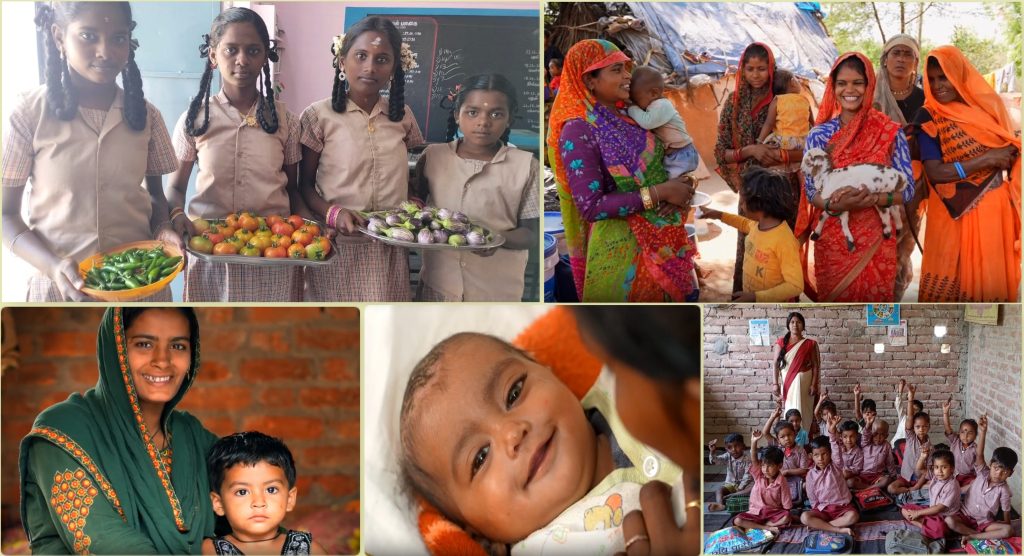
 Malnutrition has long been a significant challenge in our country. According to the Food and Agriculture Organisation (FAO)’s 2023 Global Food Security Report, an estimated 74 per cent of the Indian population cannot afford a healthy diet. There is a lack of awareness and accessibility of nutritional food in underprivileged sections of society.
Malnutrition has long been a significant challenge in our country. According to the Food and Agriculture Organisation (FAO)’s 2023 Global Food Security Report, an estimated 74 per cent of the Indian population cannot afford a healthy diet. There is a lack of awareness and accessibility of nutritional food in underprivileged sections of society.
Since its inception in 2010, Britannia Nutrition Foundation (BNF) has focused on preventing and managing malnutrition among children aged 0-5 years and addressing iron deficiency anaemia among children, adolescents, and expectant/new mothers. Using an inclusive and holistic approach, BNF targets the affected individuals and their entire communities to break the intergenerational cycle of malnutrition. CSR Mandate spoke with Rajneet Kohli, Chief Executive Officer and Executive Director, Britannia Industries Ltd., to learn more about the extensive work Britannia is undertaking to raise a healthy generation.
Could you share with us the mission statement of what Britannia Nutrition Foundation (BNF) based its belief regarding reaching out to the underprivileged in India?
Our mission is to contribute to every child’s right to nutrition and growth by implementing sustainable, replicable programmes, pursuing product innovation and research, addressing core and allied causes for malnutrition and assuming responsibility for the nourishment and vitality of the community.
We use a structured methodology to ensure that our interventions deliver optimal and long-lasting impact to drive positive social transformation through a four-stage approach to address malnutrition in the communities: Detect, Treat, Sustain, Prevent
What made Britannia decide to focus its CSR programmes on the field of nutrition, apart from the fact that it is one of the best food products companies in the country?
At Britannia Nutrition Foundation, our decision to focus our CSR programmes on nutrition stems from a deep commitment to creating holistic well-being and societal impact. Beyond our position as a leading food products company, we recognise the critical importance of nutrition in shaping lives and communities across rural and urban areas. By prioritising nutrition in marginalised communities, we aim to address pressing societal challenges of health inequalities, promote healthier lifestyles, and contribute to sustainable development. We want to ensure everyone is accessible to nourishing food for a better tomorrow.
Could you elaborate on how the Foundation is improving the health and nutrition of the communities under this programme?
We use a structured methodology to ensure that our interventions deliver optimal and long-lasting impact to drive positive social transformation through a four-stage approach to address malnutrition in the communities.

- Detect: Screening children to identify SAM/MAM (Severe Acute Malnutrition/Moderate Acute Malnutrition), screening adolescents for low Body Mass Index (BMI) and anaemia, and screening pregnant women for low BMI and anaemia.
- Treat: Referring children suffering from SAM to nutrition rehabilitation centres, providing nutrition support, iron biscuits, hygiene and water kits and setting up nutrition gardens.
- Sustain: Building and strengthening the ecosystem with improved awareness of entitlements and delivery of health and nutrition services.
- Prevent: Sensitising children, adolescents, mothers, caregivers and the community towards health, hygiene and nutrition practices.
Our Foundation’s efforts to sustain nutrition impact and combat malnutrition are bolstered by our dedicated team of Suposhan Sakhis, who are trained volunteers hailing from local villages. These individuals possess a clear understanding of the importance of balanced, nutrient-rich diets. They actively encourage their families and communities to adopt and sustain healthy eating habits through regular engagement. This involves offering advice on dietary selections and conducting counselling sessions.
How is Britannia working with different stakeholders towards addressing malnourishment issues in newborns to five-year-olds and their mothers, pregnant and lactating women, five-year-old children, adolescents, newly married women, and innovations in nutritional food?
 We are working at various levels of society to address malnutrition.
We are working at various levels of society to address malnutrition.
We educate pregnant and lactating mothers through awareness sessions in one-to-one discussions and group  sessions on healthy pregnancies and protecting themselves from conditions like anaemia.
sessions on healthy pregnancies and protecting themselves from conditions like anaemia.
Newborns and children under five years old are supported by Suposhan Sakhis, who are volunteers and part of the local community. They do regular home visits and provide  the right knowledge to parents about the issue of nutrition and healthy child-rearing practices.
the right knowledge to parents about the issue of nutrition and healthy child-rearing practices.
Our student volunteers called Nutrition Champions aged 9-19 years, are trained and educated on anaemia, well-balanced and nutrient-rich meals and menstrual hygiene, which they further extend to their peers aged 6 -19.

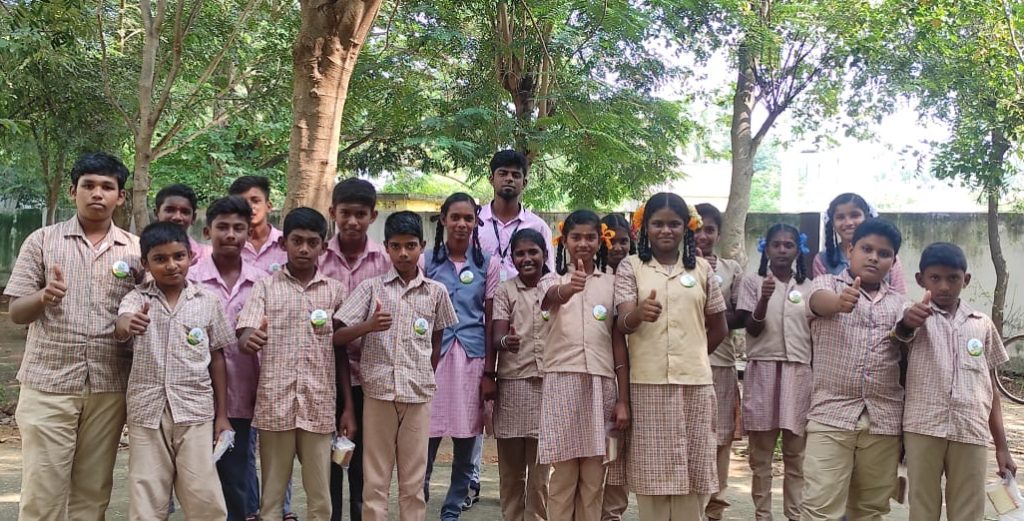
What are you doing to sustain the nutrition impact and ensure that communities stay free from malnutrition?
Our Foundation’s efforts to sustain nutrition impact and combat malnutrition are bolstered by our dedicated team of Suposhan Sakhis, who are trained volunteers hailing from local villages. These individuals possess a clear understanding of the importance of balanced, nutrient-rich diets. They actively encourage their families and communities to adopt and sustain healthy eating habits through regular engagement. This involves offering advice on dietary selections and conducting counselling sessions.
Over the past year, our intervention has positively impacted over two lakh beneficiaries, specifically targeting malnutrition and anaemia. We prioritise addressing the root causes of malnutrition, focusing on improving dietary habits, implementing beneficial practices, and enhancing access to essential services. Additionally, we foster collective support and awareness by forming beneficiary groups. Our initiative extends its reach to children, adolescents, mothers, caregivers, and the wider community, emphasising the significance of health, hygiene, and nutrition in overall well-being.



Shivani Adivasi
|
How do you ensure that there is seamless accessibility and delivery service?
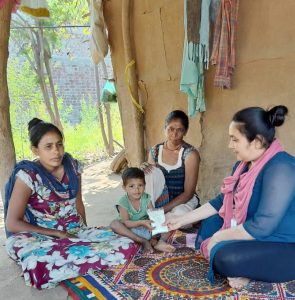 We work with Convergence under NUHM and Integrated Child Development Services to ensure quality services and quick delivery to anyone in need, hence ensuring seamless accessibility through an efficient team of frontline workers.
We work with Convergence under NUHM and Integrated Child Development Services to ensure quality services and quick delivery to anyone in need, hence ensuring seamless accessibility through an efficient team of frontline workers.
We also facilitate home visits and counselling sessions to drive behavioural changes in parents to ensure long-term adaptation and understanding of how to take care of their child’s health and nutrients.
The vital cogs in addressing malnutrition are the three pillars – Water, Sanitation and Hygiene. Do share in detail what BNF is undertaking to bolster these pillars and combat malnutrition in these vulnerable communities.
Let me share in detail what we do through each pillar.
Water:
- We provided clean drinking facilities in schools/PHC/villages by installing RO water filters
- We repaired and refurbished water bodies and constructed new water storage infrastructure in the communities
- We spread awareness at the Individual and household levels on how to incorporate clean drinking water practices and mitigate and prevent waterborne disease
- We distribute water kits for poor households where there are limited means for storage of drinking water
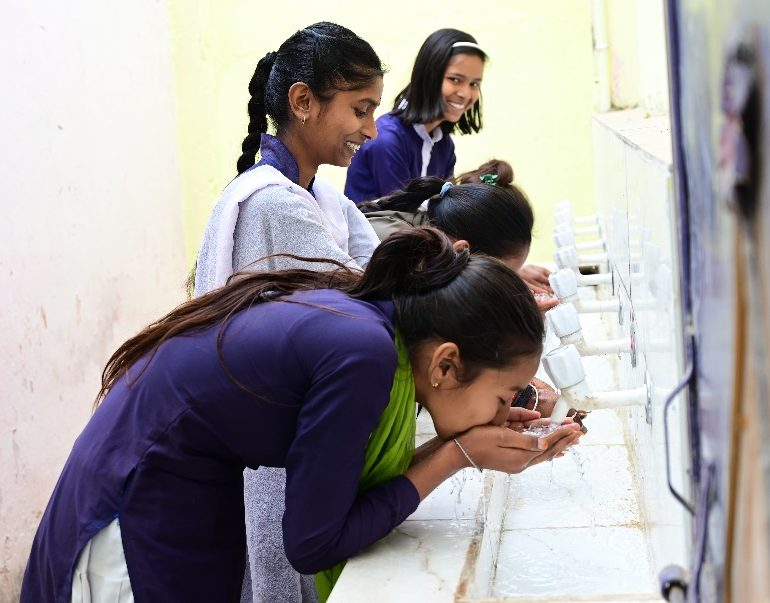
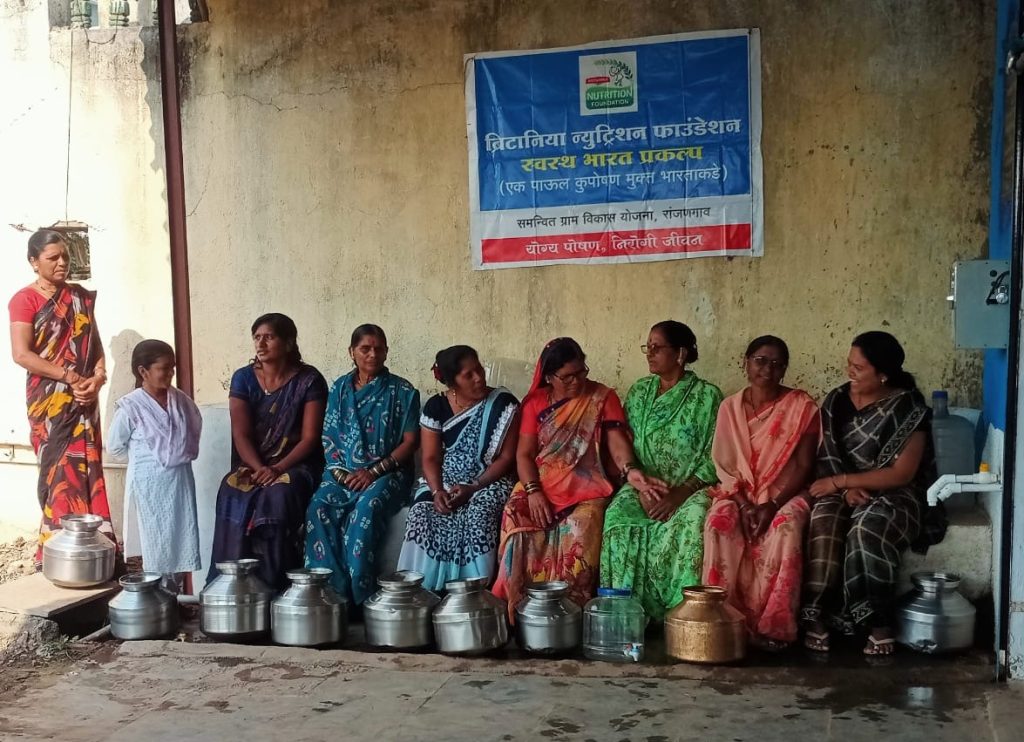
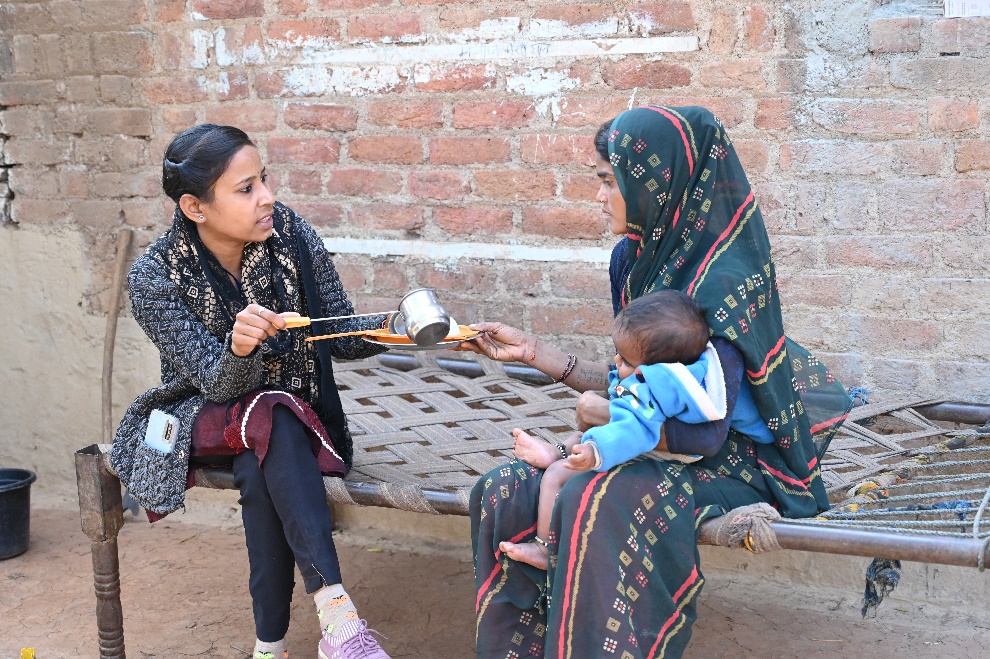
Sanitation:
- We conduct awareness sessions for adolescent girls in Anganwadis on topics like anaemia, hygiene during menstrual cycle
- We create awareness on hand-washing practices
- We have improved toilet facilities at the school level, especially for girls
- We teach and encourage residents to keep the locality clean for a disease-free environment
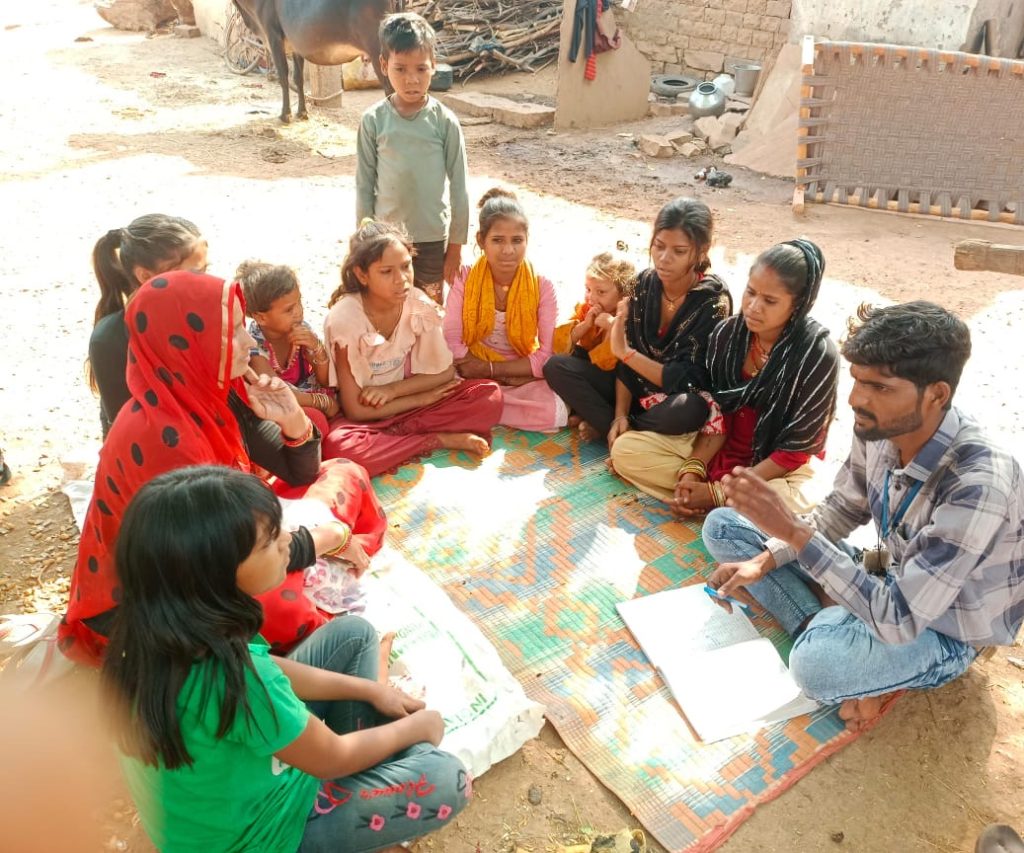
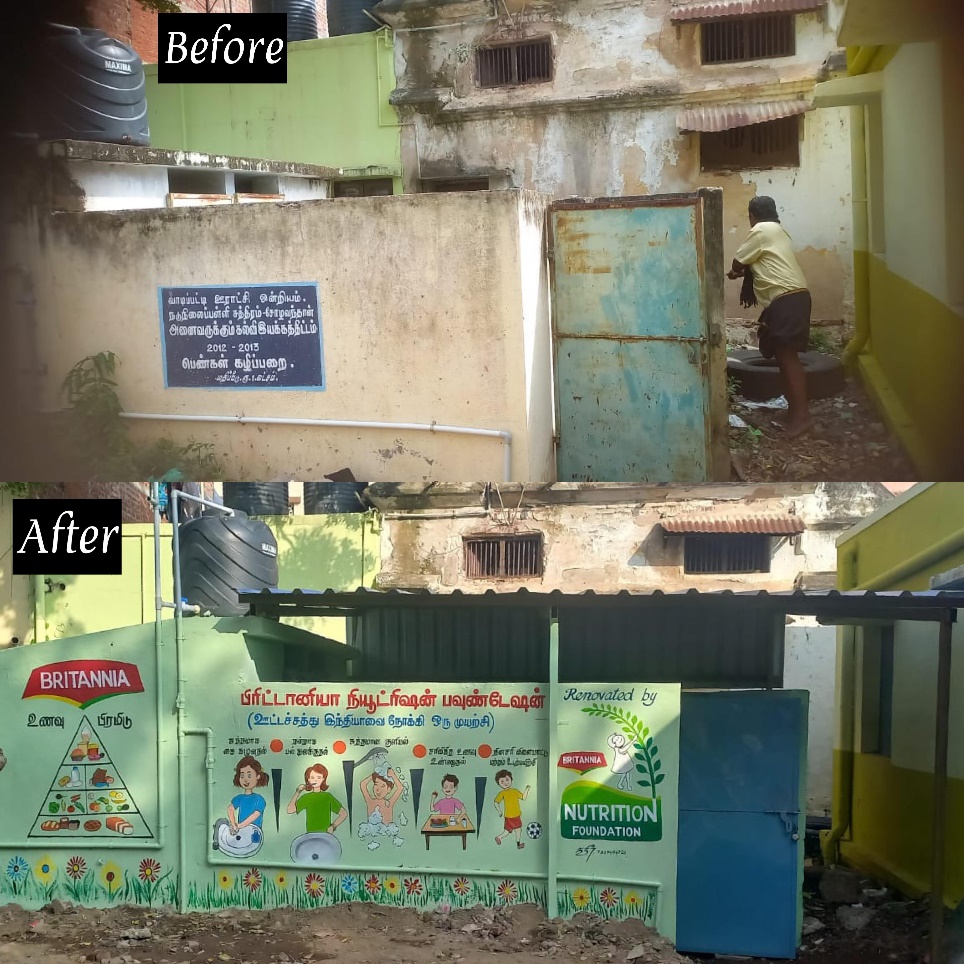
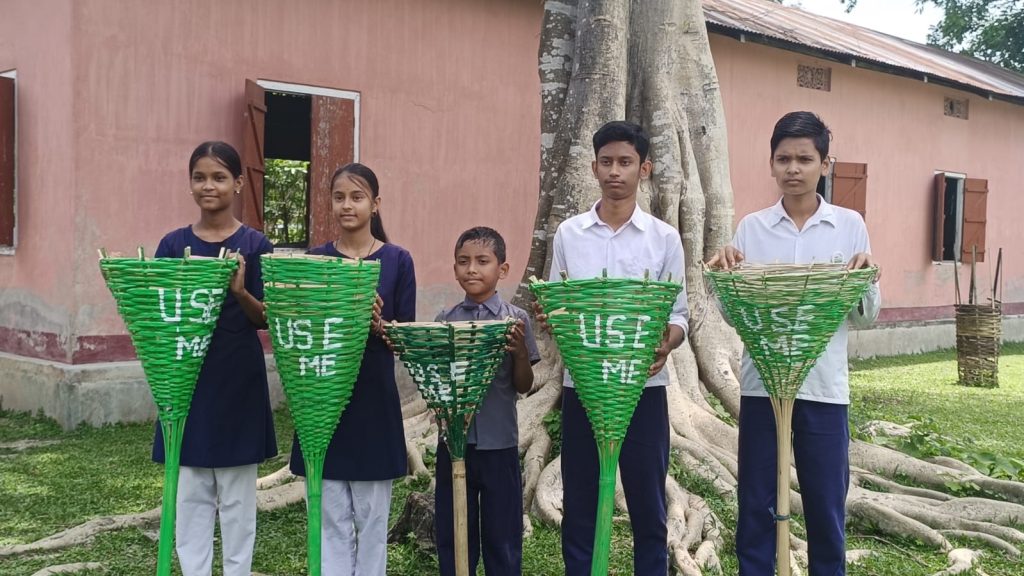 Hygiene:
Hygiene:
- We carry out awareness sessions on health, hygiene and locally available nutritious food for pregnant, lactating mothers and adolescents
- We provide hygiene kits to young children who are SAM/MAM
- We create awareness and behaviour change in children and adolescents on personal hygiene
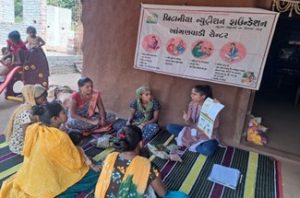

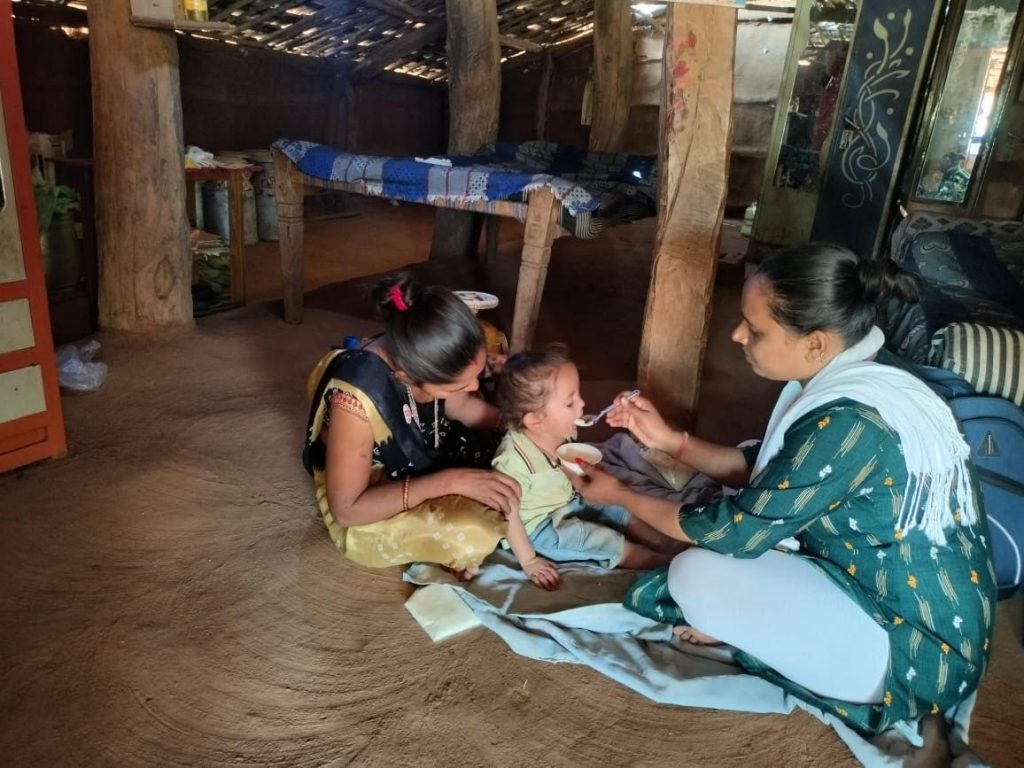
The project has made a significant impact in 600 + villages and slums across the country, covering about 700+ schools, and 1200+ Anganwadi across nine States, namely, Assam, Bihar, Odisha, Madhya Pradesh, Gujarat, Maharashtra, Karnataka, Uttarakhand and Tamil Nadu. It has positively impacted the lives of 68,000 children under five years old. Overall, the project has impacted a population base of 2,00,000 people, including children under 5, between 6-9 years, 9-19 years adolescent girls and boys, and pregnant and lactating women.
How do you monitor and assess the programme?
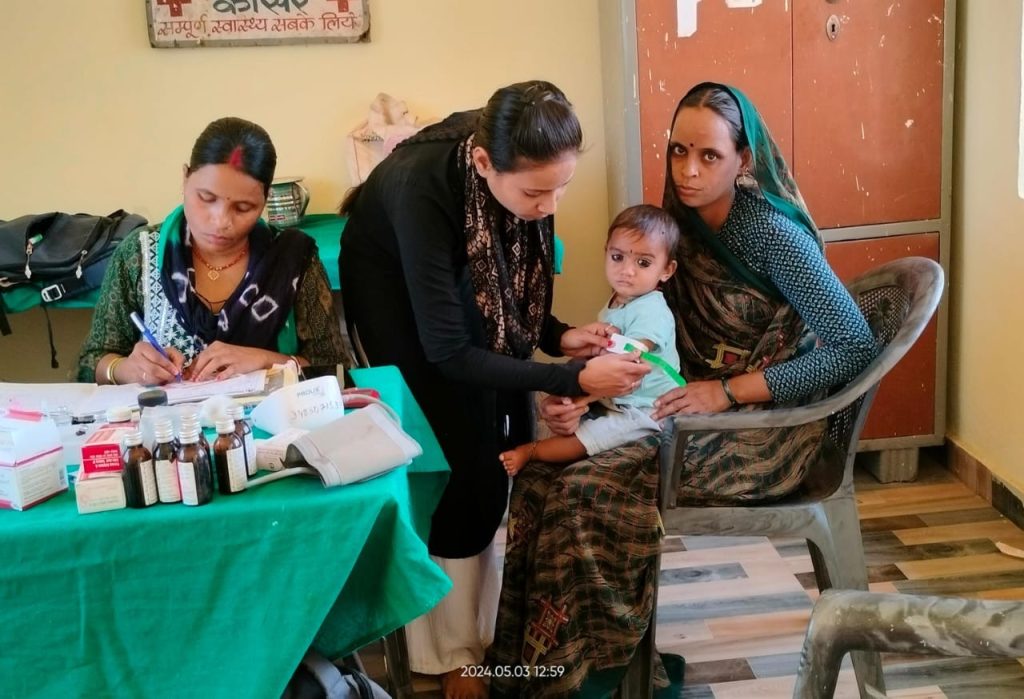 We monitor the programme at two levels: digitally and in the field. To implement the programme and track the beneficiaries, we developed a mobile app that equips the team at the central and field levels to monitor beneficiaries for follow-up services. It is important to note here that we still employ the traditional method of field visits, interaction
We monitor the programme at two levels: digitally and in the field. To implement the programme and track the beneficiaries, we developed a mobile app that equips the team at the central and field levels to monitor beneficiaries for follow-up services. It is important to note here that we still employ the traditional method of field visits, interaction 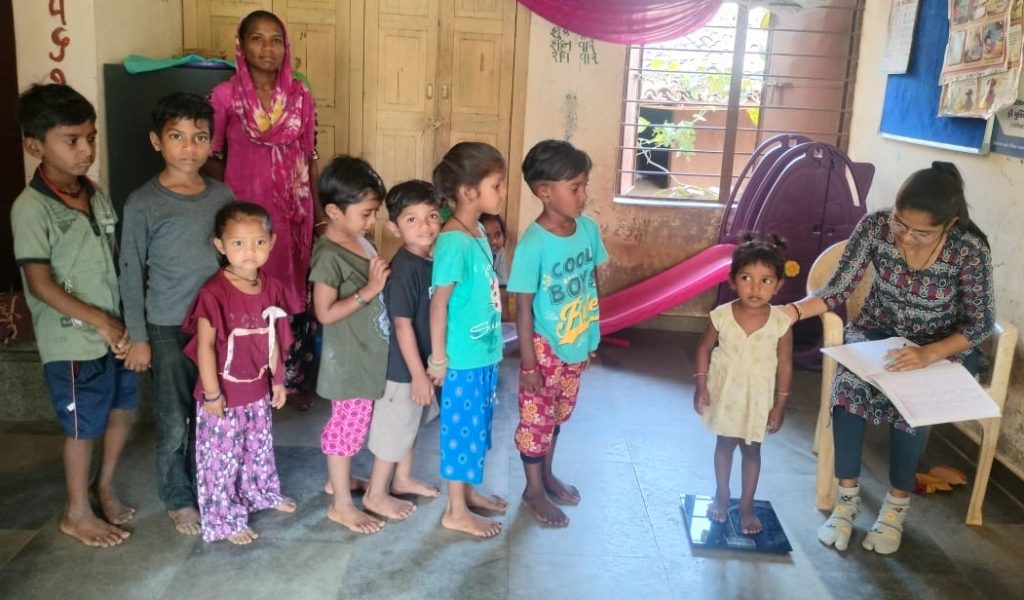 with the beneficiary on the services taken, quality of intervention, and outreach. These two methods complement each other, ensuring the overall quality of the programme. Digital tracking of beneficiaries ensures monitoring at scale, whereas field visits help ensure the quality dimension of the programme.
with the beneficiary on the services taken, quality of intervention, and outreach. These two methods complement each other, ensuring the overall quality of the programme. Digital tracking of beneficiaries ensures monitoring at scale, whereas field visits help ensure the quality dimension of the programme.
Diksha’s Journey to Wellness
|
Who are the implementing NGO partners in the different States of India working hand-in-hand with you? How do you divide the workload with these working partners so there are no loopholes in reaching the goal?
Our intervention model primarily involves direct implementation. However, in two locations – Shivpuri in Madhya Pradesh and Sirsi in Karnataka – we collaborate with NGO partners to implement the project. In the direct implementation model, the programme field staff are hired through a third-party payroll service.
What is the impact of the initiatives undertaken so far in the 450 villages and slums in the eight States?
The project has made a significant impact in 600 + villages and slums across the country, covering about 700+ schools, and 1200+ Anganwadi across nine States, namely, Assam, Bihar, Odisha, Madhya Pradesh, Gujarat, Maharashtra, Karnataka, Uttarakhand and Tamil Nadu. It has positively impacted the lives of 68,000 children under five years old. Overall, the project has impacted a population base of 2,00,000 people, including children under 5, between 6-9 years, 9-19 years adolescent girls and boys, and pregnant and lactating women.
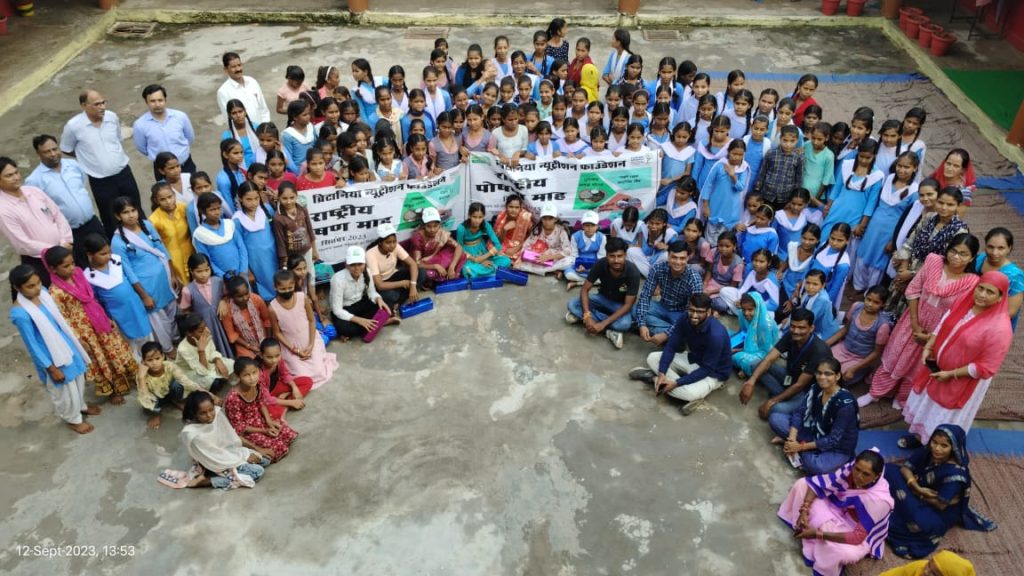

As a well-established, respected and trusted food brand, is Britannia planning to expand this programme to more States across the country to combat malnutrition?
We will add two new projects in 2024; one in North India – in Barabanki, Uttar Pradesh, and one in South India – in Tirunelveli, Tamil Nadu. With these additions, our operative projects across the country will reach 13, spanning 10 States.


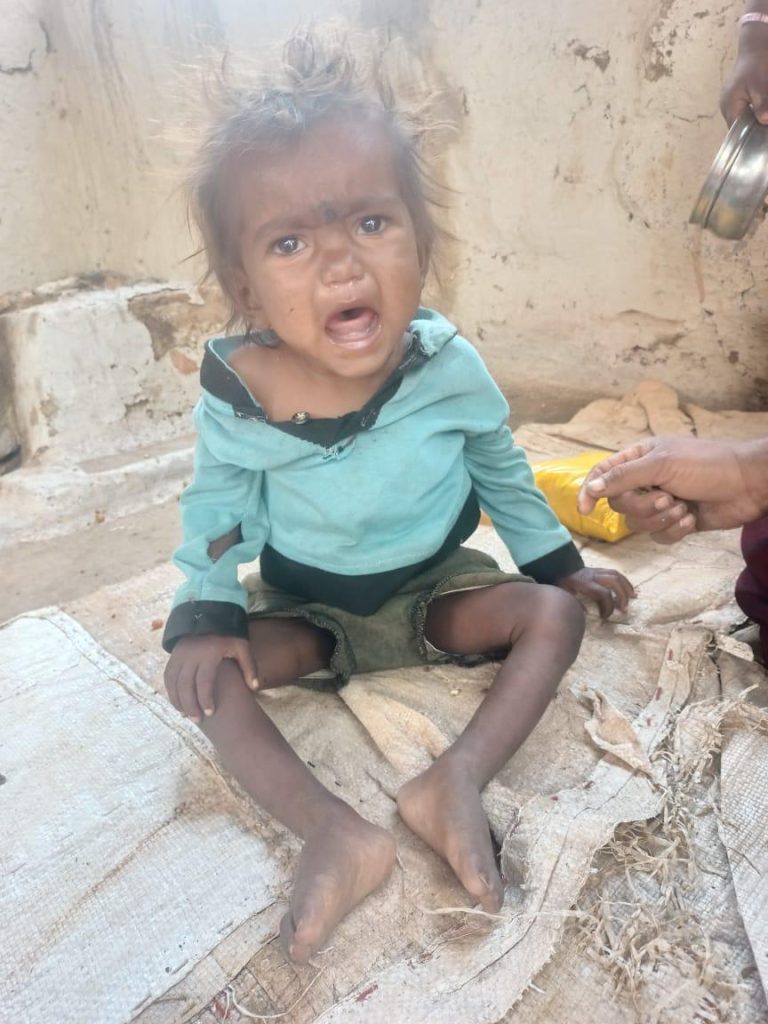 In the modest dwellings of Maanpur, Shivpuri, M.P., young Shivani Adivasi began a life marked by immediate adversity. Her parents, Morpal and Kranti Adivasi are daily wage labourers. When the BNF team visited the family during a routine household call on May 12, 2023, two-year-old Shivani weighed barely 4.9 kg and measured only 65 cm in height. Her nutritional status was classified as Severe Acute Malnutrition (SAM).
In the modest dwellings of Maanpur, Shivpuri, M.P., young Shivani Adivasi began a life marked by immediate adversity. Her parents, Morpal and Kranti Adivasi are daily wage labourers. When the BNF team visited the family during a routine household call on May 12, 2023, two-year-old Shivani weighed barely 4.9 kg and measured only 65 cm in height. Her nutritional status was classified as Severe Acute Malnutrition (SAM).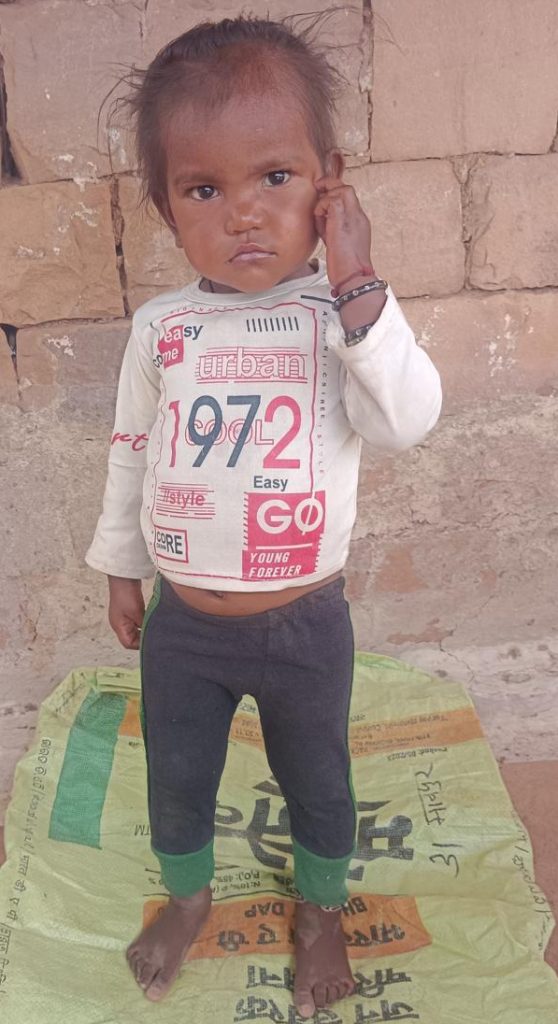 4. Kitchen Garden Initiative: A garden was set up to ensure a lasting supply of fresh produce, aiding in Shivani’s and the family’s nutrition
4. Kitchen Garden Initiative: A garden was set up to ensure a lasting supply of fresh produce, aiding in Shivani’s and the family’s nutrition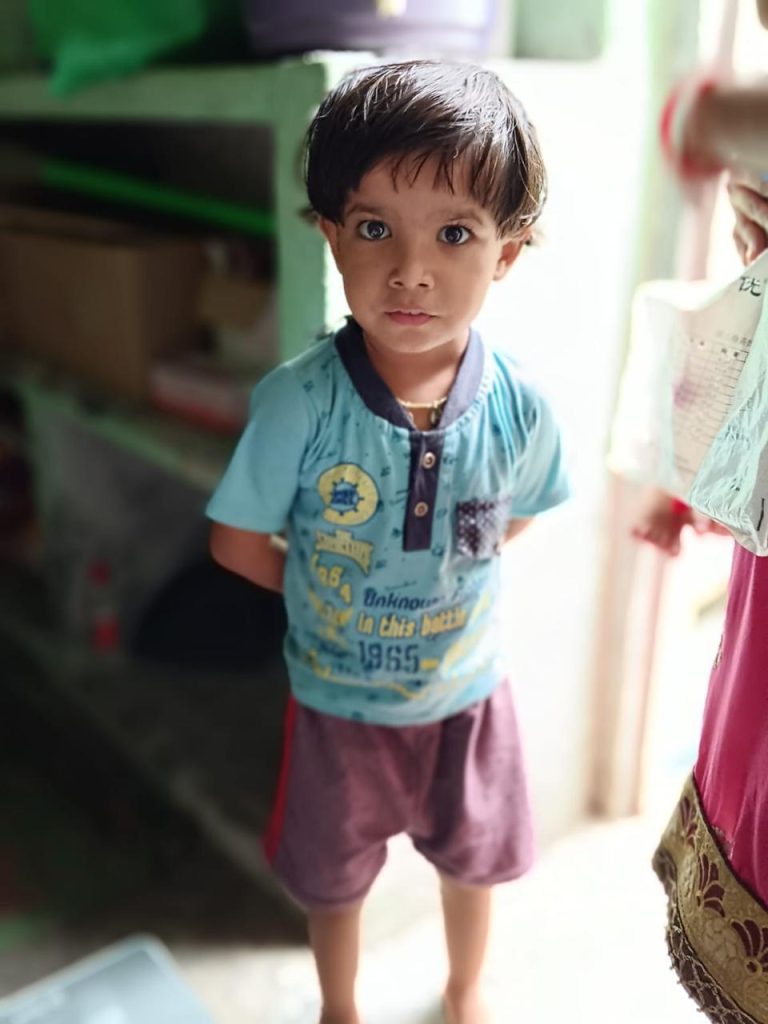 In one of the transit camps of Rudrapur, Uttarakhand, lives a young girl named Diksha. Her parents – Ramakant and Sonam, are daily wage labourers. During a routine household visit by the BNF team, it was observed that Diksha appeared weak and had difficulty breathing. Suspecting a medical complication, the area coordinator advised her parents to take her to DEIC for further examination.
In one of the transit camps of Rudrapur, Uttarakhand, lives a young girl named Diksha. Her parents – Ramakant and Sonam, are daily wage labourers. During a routine household visit by the BNF team, it was observed that Diksha appeared weak and had difficulty breathing. Suspecting a medical complication, the area coordinator advised her parents to take her to DEIC for further examination.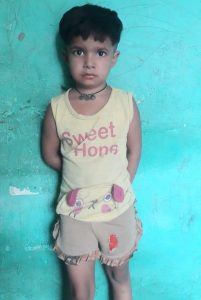 Surgery and Recovery Surgery
Surgery and Recovery Surgery